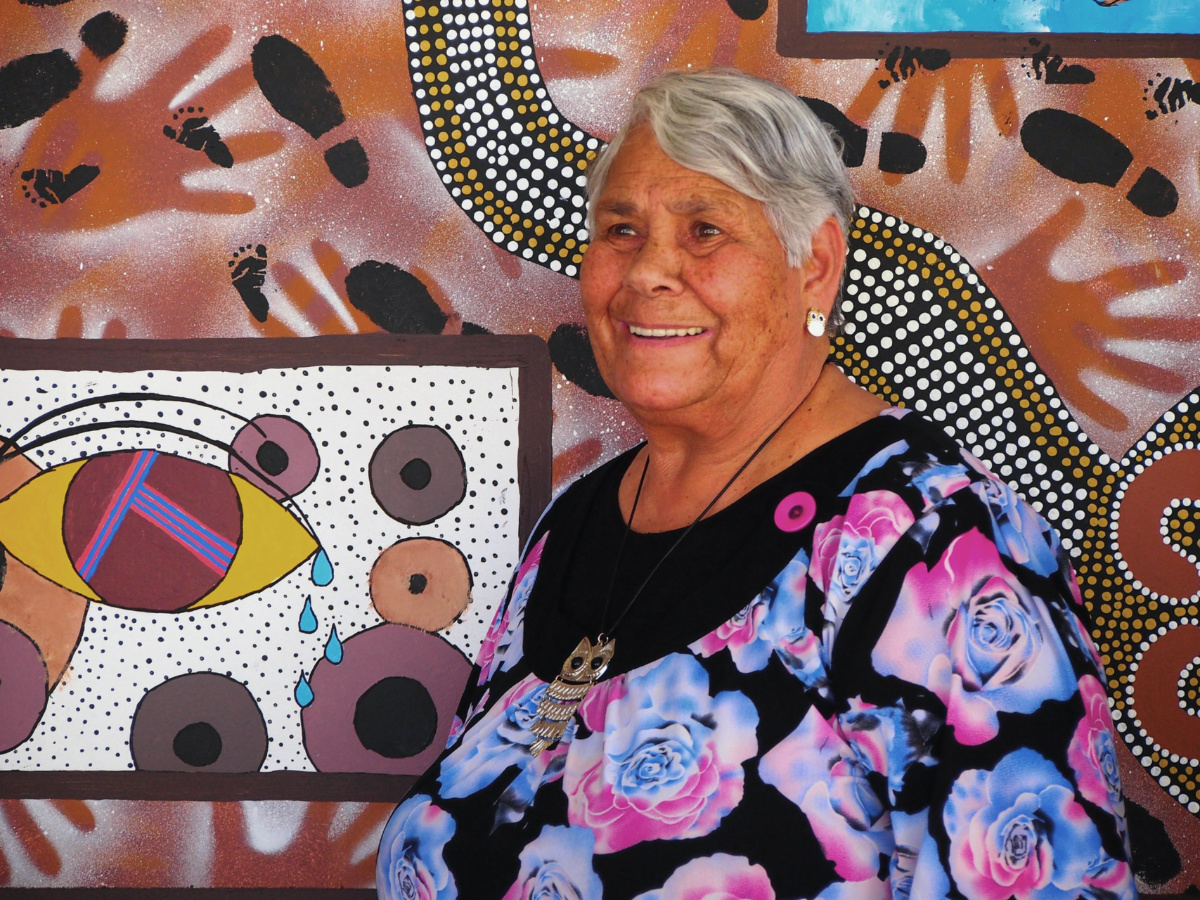
TIM COSTELLO reflects on the late Australian Indigenous leader Lowitja O’Donoghue’s “deep” Christian faith…
Melbourne, Australia
Lowitja O’Donoghue was an outstanding Indigenous leader. What is less well known – and that you won’t hear in any coverage of her state funeral – is that she was a person of deep faith.
As I sat in St Peter’s Cathedral in Adelaide for her state funeral last week, I could feel the negative energy from some in the audience. The church setting must have felt incongruous for some. There were deans, clergy, and archbishops in robes and gowned cathedral choirs but some in attendance didn’t sing the hymns.

Lowitja O’Donoghue at a ceremony to unveil a mural at the site of the former Colebrook Children’s Home at Eden Hills, South Australia, on 6th November, 2013. PICTURE: Bahudhara/Wikipedia (licensed under CC BY -SA 3.0)
They stayed silent during the communal responses to the long liturgical prayers. The mob were here to honour Lowitja, but were not these the trappings of a colonial faith that had extinguished Indigenous spirituality? Were not the missionaries colluding in the removal of children – and Lowitja was herself one of those? Why were we celebrating the life of one of Australia’s greatest Indigenous leaders with the full regalia of Christendom?
“Lowitja understood more than most that the problem of bad faith is not answered by no faith. The problem of bad faith should be addressed by better faith. Her whole life exemplified this better faith.”
Why? Because Lowitja was a woman of strong faith and wanted her funeral there. She chose the hymns Amazing Grace and The Old Rugged Cross: favourites of Baptists, and black Baptists particularly. Lowitja understood more than most that the problem of bad faith is not answered by no faith. The problem of bad faith should be addressed by better faith. Her whole life exemplified this better faith.
Prime Minister Anthony Albanese described O’Donoghue as a “leader’s leader”. He spoke of “the little girl who longed to be reunited with her mother” who “somehow transcended the weight of her own experience and grew into a woman of grace, moral clarity and profound inner strength”. Her friend Pat Anderson AO, human rights advocate, recalled Lowitja’s deep love for her faith which gave her joy and “sustained her in some hard and dark times of which there were many.”
For Lowitja, faith in the God of Jesus Christ gave her inner strength. She was the first Indigenous missionary for Australian Baptists going to Assam, India, in the 1960s to be a midwife. She reflected on how the babies she was delivering all knew their mother (or would), but she did not know her own mother. A penny had dropped. Her journey to become the outstanding lndigenous leader she became began with that insight.
Her faith was the foundation for her strength and compassion over decades on the rights and reconciliation journey. She was not for angry denunciations. She was for respectful negotiations. Pat Anderson quoted her words from 1997: “We cannot lose the will to resolve these issues, because they will not go away. But tackling them half-heartedly or high handedly will be a recipe for continuing failure. I believe the solutions are at hand. But they will require determination and patient effort, negotiation and compromise, imagination and true generosity.” Generous she was .
We rely on our readers to fund Sight's work - become a financial supporter today!
For more information, head to our Subscriber's page.
The Prime Minister quoted from her address to the UN General Assembly in 1992: “We do not wish to conquer or oppress. Nor indeed do we wish to retaliate for two centuries of injustice. Rather we seek to create a new partnership based on understanding, cooperation and goodwill. The past cannot be changed, our future is in our hands.” This is a better faith.
Lowitja’s public leadership was matched by her ability to preach up a storm. She preached at my induction as President of the Baptist Union of Australia in 2000 at Collins St Baptist. She was magnificent. Afterwards she asked me if, after the afternoon tea amidst the magnificent Corinthian columns in the Paris end of Melbourne, we could go and meet some of the Indigenous mob that lived on the streets. I was humbled at her sensitivity and care for them. This was her faith: a better faith.
Lowitja honoured Indigenous spirituality but showed in her Christian faith the resources she needed to seek justice and mercy.

Tim Costello is senior fellow at the Centre for Public Christianity.





